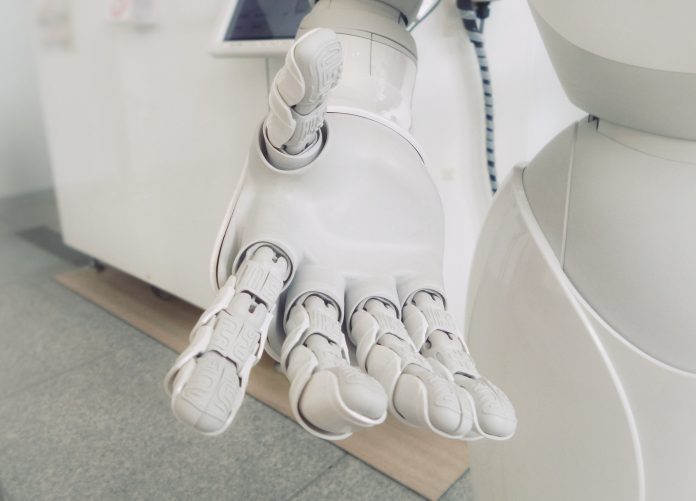
Technological advancement is driving changes in many industries. The internet and mobile phones are two interconnected technologies that affect our daily lives. While there’s an active debate among psychologists, educators, and parents on the amount of screen time children should be limited to. There’s another technology growing rapidly with the potential to change the face of the education sector massively.
Artificial Intelligence (AI) is not an entirely new technology or subject to discuss. Many novelists from the past and science fiction movies have predicted its rise to popularity. While it hasn’t gone as they’ve expected – yet- the technology itself is here and is driving changes in all industries. It is not often that technology is introduced that impacts all industries, including education. But this is what artificial intelligence is about.
In recent years, experts have predicted that between 2017 and 2021, the use of artificial intelligence in education in the US will grow by 47.5 percent. This is according to a report on the Artificial Intelligence Market in the education sector in the US. Although many education experts believe that teachers’ presence can’t be taken away by this technology, they agree that it will change how they go about their jobs and the educational best practices to apply.
It is not just transforming the way teachers can do their job. It is also revolutionizing the way students learn. This growth isn’t restricted to the US alone. According to the market research engine, global AI usage in education is estimated to have an annual growth rate of 45 percent and is predicted to reach $5.80 billion by 2025.
We are done seeing this technology play out brilliantly in sci-fi movies. We’re now seeing it manifesting in our lives every day, and it has brought about a lot of possibilities in the education sector as well. Here are some of the leading roles that artificial intelligence is playing/will play in education.
-
Task Automation
AI has been used in different industries to automate tasks, and it will come in handy the same way in the education sector. Professors and teachers usually have to manage the classroom environment alongside numerous organizational and administrative tasks. According to a report in research paper writing services, teachers don’t just teach. They also spend time grading tests, evaluating homework, filing the necessary paperwork, making a progress report, organizing resources and materials for lectures, managing teaching materials, etc. It’s a lot of work involved.
In the end, they spend a lot of time on non-teaching tasks, and it overwhelms them. Artificial Intelligence will automate these tasks to have more time to do their primary work of teaching without being bothered with administrative tasks.
-
Personalized learning
AI can ensure that educational software is personalized for individuals. There are already adaptive learning software, games, and programs for students. This use of AI is probably one of its most significant in education as learning is more comfortable and smoother and cut across personal knowledge.
This system emphasizes each student’s needs, highlighting specific topics students are weak in and repeating subjects they haven’t mastered.
This will create custom-tailored education through AI. Teachers will only be there to offer support and help when students need it.
-
Universal access
Educational classrooms can become globally available to all students through AI tools, even those that have hearing or visual impairment or speak different languages. With a PowerPoint plugin such as Presentation Translator, students have real-time subtitles for everything the teacher says. This opens up new possibilities for students who need to learn at different levels, who want to learn a subject unavailable in their school, or are sick and absent from schools. AI can break down the silos between traditional grade levels and schools.
-
Smart content creation
AI can help teachers create smart content that makes teaching and learning more comfortable for them and the students, respectively. According to Paul Barry, lab report writer at assignment writing service, AI can help teachers create different content types.
- Digital lessons
AI can help generate bite-sized learning, study guides, digital textbooks, all within the framework of digital learning.
- Information visualization
Simulation, visualization, and web-based study environments are different ways to perceive information that AI can power.
- Learning content updates
Learning content can be generated and updated regularly with AI. This ensures that information is up-to-date.
-
Teaching the teacher
One thing that is important in education is for the teacher to not rely on their old, residual knowledge. There are more facts that they need to know and teach the students as well. Not to mention the fact that they study and teach within a limited scope and there are many other things that they can still learn.
With AI, teachers have comprehensive information available to them at their fingertips. This allows them to keep themselves educated in things that they didn’t know or improve on their past knowledge. With this, they will be better-rounded and have a more in-depth and broader knowledge base to sea with the 21st-century students.
-
Identify classroom weakness
The primary fear of introducing AI into an industry is that it will replace the industry workers, and people will lose their jobs. This isn’t entirely true, though. In fact, in education, AI is not meant to replace teachers. It’s meant to complement them.
AI can complement the teacher’s work in a classroom to identify some of the weaknesses within the classroom. For example, AI will be able to identify when some students miss specific questions. By alerting the teachers, they know they have to reteach the material because the students don’t understand it yet. This will make the teachers more accountable and make them adhere to the best teaching practices.
-
24/7 Assistance
It’s not just teachers that have access to a flurry of information through AI. Students do too. This means that they can get help on any topic at any time of the day with AI bots.
Traditionally, students only get solutions to their problems when they meet with their teachers or professors and have the chance to ask them questions in the classroom. Thankfully, they will not have to wait that long anymore.
Several AI-powered chatbots are specifically built for education as a sector. They work as students’ assistants round the clock to provide answers to their queries at any time. So, they don’t have to wait to see the prof in their office or the classroom.
Conclusion
Anyone who’s informed about global trends across different industries will know that personalization is top of the list. This is due to the advent of artificial intelligence, which is an advantage for the education sector. AI helps teachers up their game, providing them all the information that they need. It also allows teachers to create content that suits their students best while ensuring personalized learning. It automates tasks, so teachers have more time to do more teaching and impact the students better.
Want more?
Click for additional articles on Artificial Intelligence.




